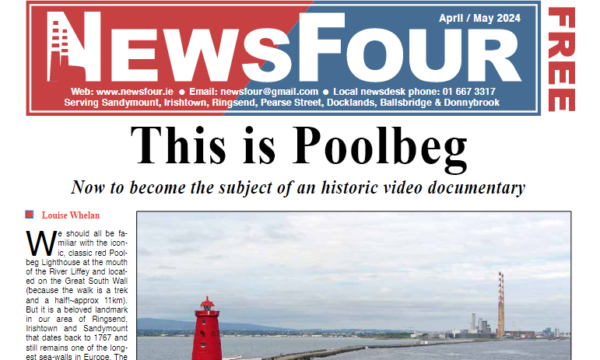
Image courtesy of Cormac Lynch
By Eoin Meegan
A new eight-week course in mindfulness has just started in Sandymount and NewsFour recently talked to the man behind it, Cormac Lynch.
Cormac has been sharing mindfulness for some years, mainly with family and friends, but now he is venturing out and wants to bring it to the wider public as he knows the benefit it can bring. From the moment he started meditating, Cormac felt something had changed inside him.
It was as if things didn’t bother him anymore, or at least not to the extent they used to. The external stimuli may have remained the same, but he was reacting to it in a different way. He noticed this in particular with driving. His family saw the change in him too. It’s like when one thing changes everything does.
Mindfulness has become a bit of a buzz-word in recent times. Although rooted in Buddhism, where it was known as Vipassana, the kind of mindfulness that is now gaining currency across the globe, and which is taught by Cormac, has been shaped and designed by the legendary Jon Kabat-Zinn.
In 1979, Kabat-Zinn founded the eight-week Mindfulness Based Stress Reduction (MBSR) Programme at the University of Massachusetts Medical School where he taught. Several independent tests have proven its effectiveness in reducing pain and also helping people with Obsessive Compulsive Disorder (OCD). Kabat-Zinn stripped it of all its Buddhist and religious connotations, and it is now taught worldwide as a totally secular modality. I think it’s fair to say it has become the standard against which all others are measured.
Jon Kabat-Zinn defines mindfulness as, “awareness that arises from paying attention, on purpose, in the present moment and non-judgmentally.” I don’t think you can improve on that.
Cormac completed an MA at Bangor University in Wales, at the Centre for Mindfulness Research and Practice, which also qualifies him to teach the discipline. The course in North Wales was started by Mark Williams, one of the leading figures after Kabat-Zinn in the mindfulness world.
This centre, along with one in Oxford, comprises the two leading centres for mindfulness in the UK. Some of Williams’s courses have even been recommended for prescription on the NHS to treat depression. Cormac believes, as Kabat-Zinn did, in an effective, and evidence-based method. “A lot of the new age stuff is fine, I suppose,” he says, “but for a genuine practice it must be backed up with some hard evidence.”
Recently Cormac has set up his own company which he calls Mindcul. As well as teaching groups of people, like his Sandymount class, he has also ventured into the corporate sector. He believes companies can be agencies of change and positivity as well as individuals.
Cormac wants to see businesses who work with the public, such as law firms, accountancy firms, even government agencies ask, “what does a mindfulness-based organisation or workplace look like?” A change in mindset like that can make all the difference. He admits it can sometimes be difficult persuading companies to embrace the mindful approach, “you need to convince the top management that this is worthwhile before they are willing to commit. Sometimes people want to see instant results, spreadsheets, work graphs and such like.”
This is understandable from a management perspective, but the problem is that it’s very hard to quantify the results of mindfulness on an individual, and on society. However, the feedback that he’s got so far has all been positive. There’s no denying that a happier, stress-free individual is going to be a much more productive and efficient employee.
Cormac supports a practice-led teaching method. He meditates himself for twenty minutes every day. “You deepen your knowledge of mindfulness, and gain experiential knowledge,” he says, “and you start realising the difficulties too. But you must test it from your own practice. Learning about mindfulness is not the same as practising it,” he says with a smile.
Cormac’s mission is to help people become aware. When we start to become aware of what’s happening, we suddenly realise the mind doesn’t always work the way we would like it to. Being mindful helps people to see what’s actually happening instead of what they want, or would like to happen. He truly believes it would make a difference to society if they did.
The current eight-week course in Christ Church Hall in Sandymount has started, but Cormac told me he hopes to run more throughout the year. The cost is €100, which not only covers the eight weeks, but also a one-day retreat that’s usually held between weeks seven and eight, and all course materials.
If you would like more information or wish to include your name for future courses you may contact Cormac at 0863679288 or email him at Cormac@mindcul.com
Let’s wish him every success with the course.



